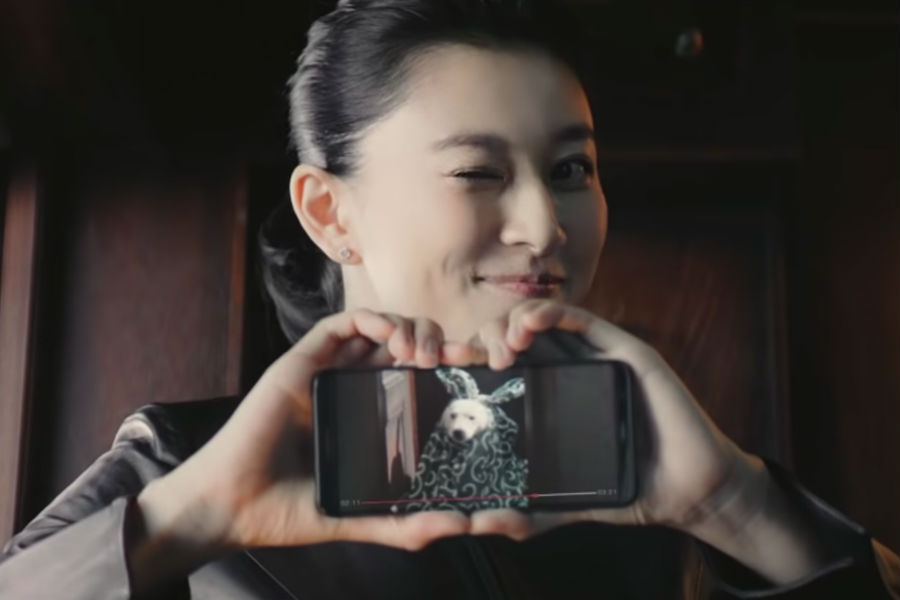For the latest installment in an ongoing parody of ‘Murder on the Orient Express’, SoftBank has turned to an unlikely source for inspiration: a maker of supposedly unbreakable reading glasses.
In typical fashion, SoftBank manages to make a quite unexciting message very entertaining. Its take on the famous Poirot mystery has been running on Japanese TV since late August. The campaign has a simple aim: to emphasise SoftBank’s new price plan, called ‘Ultra Giga Monster Plus’, which allows people to watch films without worrying about gigabyte limitations.
The premise is that Otosan (SoftBank’s white dog mascot) is missing. Aboard the train, the detective questions suspects, who as an alibi say they were watching movies on their smartphones the whole time.
Along the way, there are amusing quirks, with various celebrity guest appearances. In one episode, the detective questions a pug; in another, the comedian Yuriyan Retriever pretends to be a victim because she wants the handsome Ryoma Takeuchi to give her mouth-to-mouth resuscitation. But the most intriguing is the interrogation of Rei Kikukawa, an actress who recently appeared alongside Ken Watanabe in an ad so-cheesy-as-to-be-entertaining for Hazuki reading glasses.
The Hazuki campaign, which has Watanabe and Kikukawa deliver an OTT onstage sales pitch, has become a surprise hit in Japan since it debuted in April. A notable segment is where Kikukawa ‘accidentally’ sits on the glasses to demonstrate their toughness. She later declares her love for Hazuki glasses by forming a heart symbol with her hands. Silly as it is, the sequence gets the message across and has become famous—to the point where SoftBank decided to integrate it into its own work as a parody-in-parody.
A few days afterwards, SoftBank introduced yet another meme: an anti-piracy campaign that plays in cinemas.
Of course, SoftBank is no stranger to borrowing from other brands while simultaneously giving them extra exposure: Tommy Lee Jones’s alien character from a Boss Coffee campaign became a frequent ‘Shirato family’ guest some years ago. But it’s been a while, and aligning with a brand like Hazuki is fresh and surprising. Would other brands be able to do this sort of thing as easily? Probably not. SoftBank's (and Hazuki’s for that matter) quirkiness is a valuable asset, and a welcome reminder that TV advertising can still be fun after all.
Ryoko Tasaki contributed to this article.







